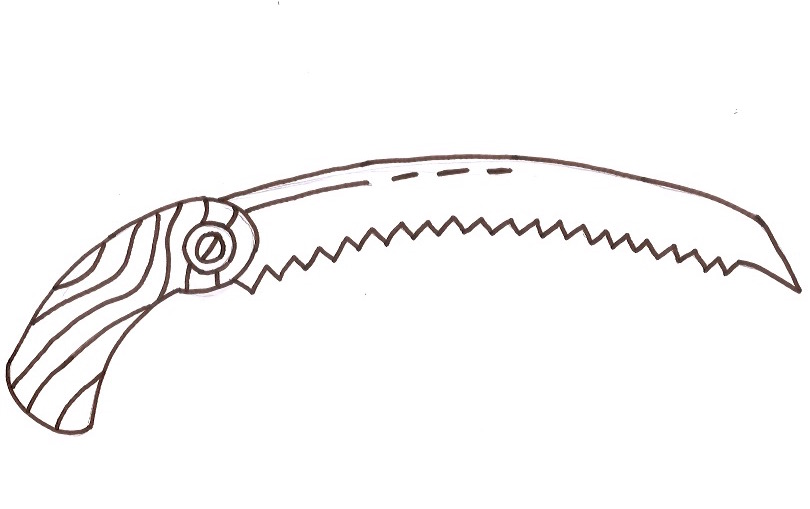The tools we use are important and diverse: carabiners, chainsaws and handsaws, tree risk assessment forms and tree resource evaluation reports, our professional credentials, our employee policies, air spades and fifty ton cranes, rakes, shovels and lighting protection systems. Arborists develop an affinity for the specialized tools we use. We develop very specific processes that employ those tools and things over and over in the same ways, day after day, week after week.
Recently I drove two hours for a contract climbing job and realized about a half hour south into the trip that I had forgot my foot ascender. I gave it to someone a week prior as a peace offering of sorts. Panic set in, and I became uneasy because suddenly my confidence regarding big crown access had deteriorated with the thought of missing my core ascent device. I would surely be useless today, I thought.
This consuming feeling of dependency on the things we carry is frightening. When we don’t have what makes us comfortable, we stress, we worry, we panic. We question our skills based on an inventory of things. The abundance of wonderful tools at our disposal quickly turns to a void of lost hope when an employee calls off, when the chipper goes down, when the crane is not available. Typical addiction.
Of course, there is no replacement for a good tool, a beautifully broken in saddle, a trusty pair of gaffs, a favorite block, a fuzzy hitch, a sharp, round file.
But what about a sharp mind and an obsessive focus. These are tools that we don’t necessarily carry in a toolbox or chip truck or rope bag. These tools we carry inside of us. The information and knowledge we acquire everyday are also tools. Experience in the form of lessons learned can be just as important as a full tank of fuel and a wheel chock. The past has a symbiotic relationship with the present, and an unrelenting affect on the future.
Every mistake is an opportunity to file away an important lesson: a misplaced block, a poor rigging setup, a disgruntled client, a mistaken diagnosis or a scheduling conflict. As these situations arise, we can tune our working process in the same way we tune our small engines or a climbing system, by tweaking a low-end adjustment just enough or taking one more or one less wrap on a prussic, by adding another half pound more or less of nitrogen in a fertilizer application, or sounding a tree ten feet higher on the trunk. Arborists can use experience as tooling to adjust our processes for the future.
Many times, moving forward, we base decisions on the things we don’t have. We need to be bigger, faster and stronger. Acquire more clients, purchase a new machine, hire another employee; these things will lead to success and profitability. But the things we need are typically always with us, believe it or not.
The success or the failure we experience doesn’t happen in a gear box or a transfer case or a busted hose or a forgotten toothed cam sitting in a plastic box in the garage two hours away. In fact, success or failure is a choice. Success, in particular, is rooted in the past lessons we have learned and shared with mentors and friends and colleagues. We either succeed or fail not because of whats in our hand but because of what is in our heart. And this may be our greatest tool.
These are the things we should carry: a deep thirst for knowledge, a voracious hunger to grow individually, a looming fear of complacency and a burning desire to affect all those around us in a positive way. Tools and gear and machines will come and go; but if we carry our most important things on the inside, they will never rust over, they will never fade away.
And you can always borrow a foot ascender.




Leave a Reply
Your email is safe with us.